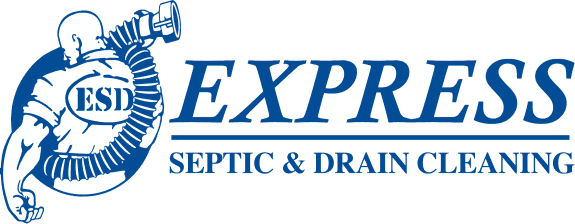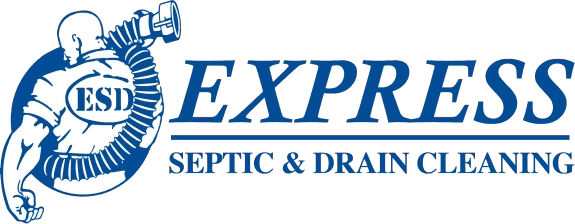Are you experiencing issues with your septic system not working properly? Some septic system problems are fairly minor, but there are other situations that definitely constitute an emergency and require immediate attention. In this article, we’ll look at the various types of septic system emergencies, how to avoid them and what to do if an emergency arises.
Understanding What Constitutes a Septic System Emergency
A septic system emergency is generally when any issue arises that makes it so that you can’t or shouldn’t use your building’s plumbing. The most common emergency is when sewage begins backing up in the septic system and eventually flows out of any drains in the building. Having raw sewage start flooding any areas in your home or business is obviously something you’ll want to avoid at all costs. Not only can it be a health hazard to clean up, but a major sewage backup also has the potential to do lots of damage to your property.
The worst-case scenario is if sewage begins backing up inside when you’re running your washing machine or taking a shower. You’ll only have to deal with a few gallons of sewage if the backup starts happening when you flush a toilet, but a shower or dishwasher will likely flush 15-20 gallons or more of sewage out of your sewer line and into your home.
Another situation that is considered an emergency is if you suspect that your septic tank is leaking. A leaky septic tank can contaminate all of the soil in the surrounding area with sewage, and there is also a potential for the sewage to contaminate the groundwater. That’s why you want to regularly monitor and inspect the area around your septic tank so that you can spot any signs that potentially indicate the tank is leaking. The most obvious sign is if you can smell sewage when you’re near your septic tank. The tank is fully sealed and airtight, which means the only way you’ll ever smell sewage is if it has a leak or has started overflowing.
Another thing to look for is overly wet soil or standing water near the septic tank or leach field when it hasn’t recently rained. In this situation, you can also be fairly certain that either the tank is leaking or the drain field is clogged. One other indication that your septic tank is leaking is if any grass and vegetation near it grows more quickly than other areas and/or looks much greener and lusher. This happens because the sewage leaking or overflowing from the tank fertilizes the vegetation and provides it with additional water.
Steps to Take When Facing a Septic Emergency
The very first thing to do if a backup occurs or you suspect your septic tank is leaking is to shut off any water that is currently running. This is obviously to lessen the amount of sewage and wastewater that flows back into your home, and it can also help to reduce the amount of wastewater that escapes or overflows out of your septic tank. Once a backup occurs one time, you can pretty much be assured that you’ll have additional sewage flowing out of your drains almost any time you use a sink, toilet, shower, etc. That means that if anyone needs to use the toilet, there are only two options. Go to a neighbor’s house, gas station, etc. to use the toilet or end up having to clean up the waste that gets flushed down.
Once you’ve made sure no water is running and let everyone know not to use your plumbing, the next thing to do is call a reputable septic company in your area. Sewage backups and other septic issues can occur for a variety of reasons, and the only way to know for sure what problem your septic system has is to have an experienced professional inspect it.
Backups usually indicate that there is a clog somewhere in the septic system. This could be in the sewer line that leads from the building to the septic tank. Another possibility is that there is a clog in either the inlet baffle where waste flows into the tank or the outlet baffle where the partially treated wastewater flows out of the tank into the drain field.
A septic system can also start backing up because solids escaped the tank into the drain field or due to tree roots growing in the drain field. The pipes in the drain field have small perforations that allow water to slowly seep out of them into the soil, and then bacteria in the soil finish treating the water. If these perforations get clogged by roots or anything else, the water will quickly start backing up throughout the system. That means the septic tank may start overflowing and you’ll also usually end up with sewage backing up inside your home or business.
To determine why your septic system isn’t working properly, the septic company will usually first open the lids on the septic tank to see if it is too full and needs to be pumped. They’ll also check the drain field for any telltale signs that indicate it is clogged. They can also use a fiber optic drain camera to check that the line leading to the septic tank isn’t clogged. Once they know what the problem is, they can then come up with an effective plan for overcoming it.
Exactly what it will take to get the septic system working again obviously depends on what specific problem it has. Hydro jetting and rooting are both effective options for clearing most types of clogs. If the issue lies with the drain field, it will often need to have some types of repairs performed or possibly even be replaced.
How to Avoid Septic System Emergencies
The good news in all of this is that septic system emergencies are usually almost entirely avoidable as long as you pay attention and take some basic preventative measures. One of the most important things to do is to have your septic system inspected every year. This way you can make sure the tank isn’t at risk of leaking and get any necessary repairs or maintenance taken care of promptly. Annual inspections are also the best way to determine whether or not your septic tank needs to be pumped. The EPA recommends pumping a septic tank once every three to five years, but your tank could need to be pumped more or possibly less often. Trying to wait too long is always a bad choice since it increases the chances of major issues developing.
The other thing you should do is just be careful about what goes into your septic system. That means only flushing toilet paper and human waste as well as watching what gets washed down kitchen drains. Oil, fat, grease and even food scraps increase the chances of clogs and other septic issues arising. You should also try to avoid pouring bleach or other chemicals down the drain since they can harm the bacteria in your septic tank and make it so that the septic system doesn’t perform like it should.
As the most trusted septic service in the Boise, Nampa and Caldwell areas, Express Septic & Drain Cleaning is the company to turn to when any issues arise. Our team of experts has years of experience in septic system repairs and maintenance, and we can inspect your system to quickly see why it isn’t functioning as it should. Whether you need to schedule an inspection, have your septic pumped or a new septic system installed, contact us to get the reliable help you need.



